#a square meal
Text
Women believed that meats, starches, sweets, and fats were the foods that best stoked the human furnace, the culinary antidote to drafty farmhouses in the winter cold. Preserved foods from the cellar helped round out the diet, but the cellar’s largess stretched only so far, and by late winter supplies were running alarmingly low. The result was “spring fever,” an annual affliction that came on just as the sap began to rise in the trees and that inspired a sprawling body of medical folklore. The ailment, it was thought, resided in the blood, which in spring grew thick with poisons, causing the pulse to slow. Its most telling symptoms were lethargy, muscular weakness, and a bad temper. ... They understood, however, that the best cure was the first crop of dandelions and spring onions, which were known to thin the blood and revitalize the body. Unknown to them, spring fever was in fact a vitamin deficiency, mostly likely scurvy, brought on by the winter diet.
From A Square Meal by Jane Ziegelman and Andrew Coe
54 notes
·
View notes
Text
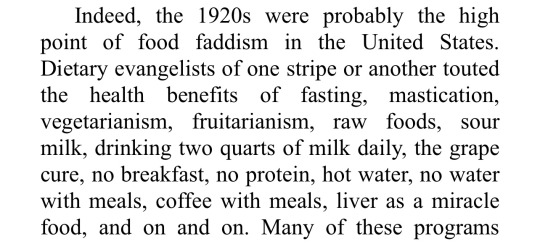
Things sure don’t change, huh
12 notes
·
View notes
Text

Local villain keeps corpse piece attached to his face and can't remember the last time he took a shower, more at 11
#bro he is so gross someone get this dude a competent parent#he needs a bath 3 square meals and a kiss on the forehead#shigaraki tomura#fanart#my art#bnha#bnha fanart#shiggy#dabishiga#tomura shiragaki#shigaraki
413 notes
·
View notes
Text
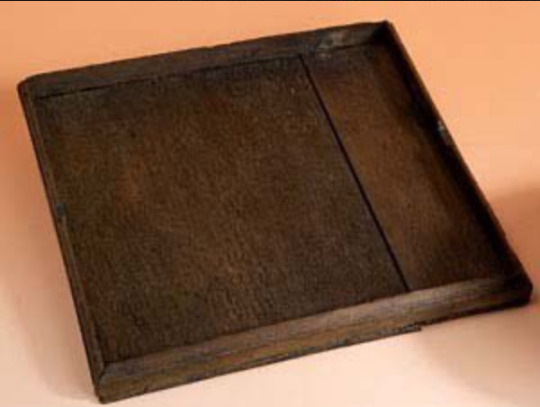
An 18th C. sailors plate had a rim around called a fiddle. If you had dishonestly got more than your fair share the food would lap over the fiddle, hence the phrase ‘On the fiddle’ if you had enough, you’d had a ‘Square meal’ due to the shape used to stop your meal rolling around.
111 notes
·
View notes
Text
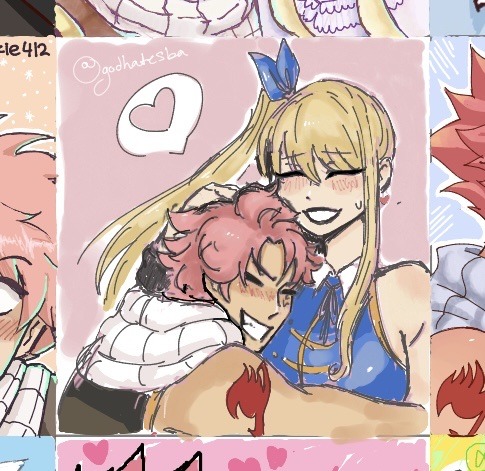
My wittle bebies
#anime#fanart#fairy tail#manga#lucy heartfilia#fairy tail lucy#nalu#natsu dragneel#fairy tail nalu#fairy tail natsu#natsu x lucy#every artist on here is so talented#it’s now a hobby of mine to stare at each square hourly#god tier artists#like seriously#I feel like I’ve been fed a 5 star meal when I see them all#nalu day 2023
163 notes
·
View notes
Text
That TikTok that’s like “I could have raised him right, I could have loved him.” that’s how I feel about Audrey Horne.
#tp rewatch#which like I’m a 23 year old man but still Jesus Christ somebody needs to feed that girl 3 square meals a day#help her with her math homework pack her lunch tuck her into bed etc
56 notes
·
View notes
Note
The clans are enormous!! what the hell are they eating?!
Funny Answer: if they can catch it. they will eat it. this includes seagulls. The only exceptions are animals that are actively poisonous/venomous like Jellyfish or Sea Urchins, but honestly they still might try.
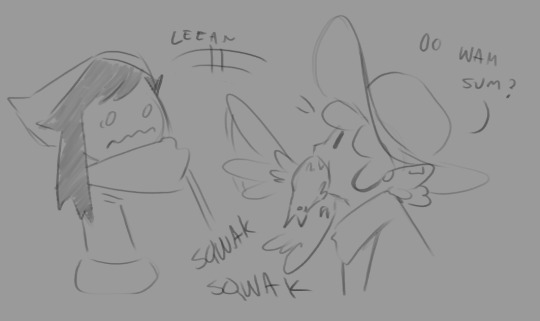
#pkm mer au#there is a less funny answer and thats sometimes they dont get three square meals if you catch my drift#especially now that they have to 'share' with Jubilife
193 notes
·
View notes
Text
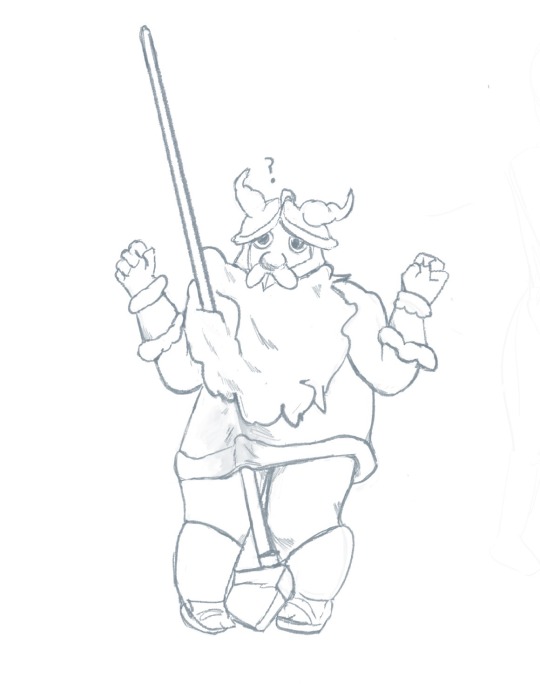
Your honor, it was for a bit
#it’s a drawfee bit#broom pose#I’m sorry#senshi dunmeshi#dungeon meshi#delicious in dungeon#idk if I should even be tagging this tbh#my art#broom that attacks you if you eat three squared meals a day
48 notes
·
View notes
Text








Only Friends Episode 8 | Sand as Freddie Mercury
Christ alive the combination of Sand in this outfit and his I've-had-enough-of-all-this-shit aura he was channelling this episode was deadly. Can they please put him in wifebeaters more often?
#only friends#only friends the series#ofts#sand#first kanaphan#first looking like a 3 course meal#HELP#no wonder ray couldn't help but grab his face and kiss him square on the mouth as soon as he laid eyes on him that night#that effing arm band has me under arrest#THE ARM BAND
143 notes
·
View notes
Text
so i read dungeon meshi today
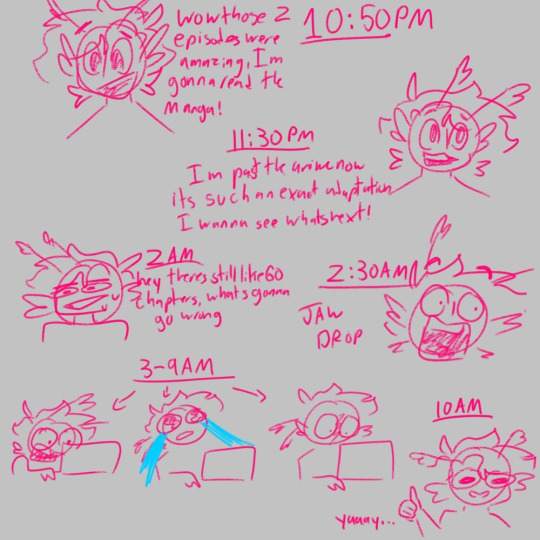
i do Not recommend reading it int he span of 11 hours but i DO recommend you read it in general holy shit it was so good i cant wait to see how the anime turns out im having So much fun
#my jaw dropped around chapter 30 and stayed on the floor for 8 hours#i Did take a break to make a good square meal with veggies and salmon around 4am#for senshi#dungeon meshi#cryptid's art#SPOILERS MENTION BEYOND THIS TAG#dude thistle#and marcille DUDE GIRL#oh my GOD and falin????? G I R L WHO CAME BACK WRONG AND AUUUUGHHHHH#so fucking tastey#lmao
22 notes
·
View notes
Text
Ever hear about the WWI veterans that marched to DC for their promised bonus pay?
In 1924, Congress had voted (over Coolidge’s veto) for the World War Adjusted Compensation Act, which was meant to make up the difference between a soldier’s pay during wartime and what he would have made in civilian life. The maximum a veteran could hope to receive was $625. The catch, however, was that this bonus was not scheduled to be paid until 1945. For men hunkered down in the trenches of the Great Depression, that seemed a long time to wait; $600 could make a huge difference to the life of a hungry and jobless veteran. Some Democratic politicians agreed.
Since 1929, Congressman Wright Patman of Texas had campaigned for a bill to amend the Compensation Act to pay out the bonuses immediately. By early 1932, it looked like the bill might finally come up for a vote, against the strenuous opposition of the president, almost all Republicans, and even many Democrats (including Governor Roosevelt). Portland’s veterans’ association asked all its members to sign petitions and write to politicians to help secure the vote. Walter Waters was a little more canny about the ways of Washington: “Our only hope was in following the successful tactics of Big Business; when its representatives wanted something from Congress, they went to it personally and said so.” He stood up in veterans’ meetings and suggested that Portland veterans send a delegation to Washington to directly lobby senators and congressmen. Initially, the men were unconvinced and trusted their government to do the right thing. But in Washington, politicians from both parties saw the bonus bill as a license to print money without the backing of gold or bond issues. On May 6, 1932, the House Ways and Means Committee voted to permanently shelve the bonus bill. Four days later, Portland’s veterans agreed to send a delegation of 250 men under strict military discipline to the nation’s capital. That same day, they headed down to the rail yards to embark on their journey across the United States. ...
Meanwhile, in Texas, Florida, Maine, Michigan, California, and dozens of other states, thousands of veterans suffering through hard times had read about the Oregon marchers, and they, too, hit the road for the nation’s capital. By May 29, when Walter Waters and his men finally made it to Washington, more contingents were on their way, some as large as 1,500 men, with a few wives and children in tow as well.
From A Square Meal by Jane Ziegelman and Andrew Coe
#bonus marchers#veterans#wwi#wwi veterans#jane Ziegelman and Andrew Coe#a square meal#great depression#us history
8 notes
·
View notes
Text
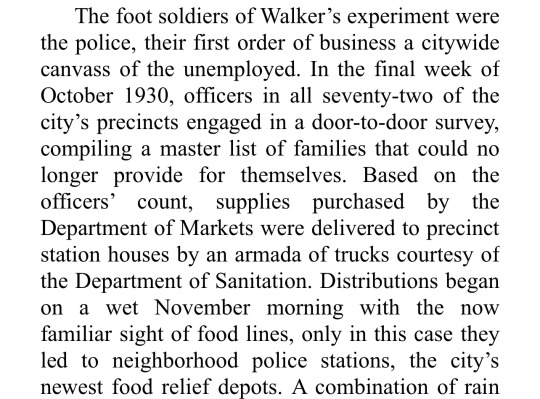
This is a very interesting thing to read about America in the 1930s, because definitely nowadays we wouldn’t ask police to do this work (nor would we want/trust them too, maybe). There are civic employees for that, and definitely places other than police stations. I could even imagine using a fire station maybe? Not police.
And obviously back in the day there was probably a lot more trust in the police (at least with white people). This was before the 60s and all that. But I’m wondering if at least some amount of trust is tied intrinsically to things like these civic duty type activities, instead of just a singular focus on law enforcement. And, as an extension of that, when did the role of the police shift hard into fully law enforcement? And when did trust start falling? Maybe that also goes towards the 60s, when they were used to suppress civil unrest. And probably it’s tied a lot to trust in government as well, regarding things like the Vietnam war.
This maybe is a weird turn in subject for me to think on while reading a book about food in America around the Great Depression.
7 notes
·
View notes
Text
as someone who was raised with a comparatively healthy mindset around food, I keep being baffled/concerned by other people’s eating practices that they’ll just drop like it’s no big deal. “I’m doing this intermittent fasting thing where I only eat one meal a day” girl if your one meal is the salad you eat every day for lunch I’m. that’s eating disorder behavior. and they talk about this stuff like it’s normal! “I’m trying out this new meal plan where—“ oh a starvation diet? You’re starving yourself?
#anyway spending time with a couple of my coworkers especially is making me dig in my heels#I’m eating three square meals a day! And I’m not budging on that! And I’m not going to be embarrassed about it!#Bc the worst thing is like. would I like to lose 20 pounds? Admittedly yeah#But idk I don’t think that’s the right way to do it!#Not that I am a paragon of physical fitness or anything but like! That’s literally unhealthy you are wrecking your metabolism probably#I would rather be a little squishy then live in this weird alternate universe where people are supposed to be on a diet by default!!!#and idk when girl that are already small are putting themselves through this and getting noticeably smaller it’s like#ok good for you I guess but is it worth it?#mostly writing this to reassure myself because it’s hard not to feel like I’m the one that’s wrong#idk if you feel like you need to lose weight logically you must think I’m some sort of beast or something#like I thought I was normal but maybe not haha#But anyway I hate how we just slapped new jargon on eating disorder behavior so we can talk#About it like its a health trend and something normal to do
13 notes
·
View notes
Text
Stephen: [walking into the kitchen] hey kid, what are you eating?
Peter: A full square meal.
Stephen: in a cup? I doubt that.
Peter: dairy, grain, and cinnamon comes from a plant so...
Peter: plus it's actually square! [holds up a spoonful of cinnamon toast crunch]
Stephen:
#stephen strange#doctor stephen strange#peter parker#im peter#incorrect quotes#incorrect marvel quotes#full square meal#breakfast cereal#cinnamon#jokes#puns#again my family#my family's incorrect quotes#this was an actual conversation me and my dad had a few hours ago
19 notes
·
View notes
Text
‘this food actually has the same amount of sugar as that food!’ thats nice dear. dont worry, ill check for sugar under your bed before you go to sleep
#i eat something sweet after most meals. and i dont mean like an apple or a few squares of choc#sugar is awesome except for when i eat like 4 sweet things at 1 and then nap and have insanely specific dreams#u just gotta learn what ur body is cool w/ and u can only do dat through trial and error
8 notes
·
View notes
Text
on the one hand i hate to have my routine disrupted but on the other hand getting home at 7pm and eating cake in my underwear is pretty fun
#my friend and i went to the market and we started talking to this old woman running a vintage clothing stall#and we started talking to her at maybe 12:30 at the latest and we stayed there until *4pm*#i was like hmm i'm kinda hungry and i checked the time and it had been THREE HOURS like yeah no shit#no wonder i was hungry and my legs hurt and i needed to piss#she was a super interesting person so the time flew by#but yeah bc of that we had lunch at 4pm which is super late for me and i eventually got home at 7pm#so i'm not really hungry for dinner#but i did also get cake so 👀#and i'm in my underwear bc why not#i do get kinda stressed when i don't eat three square meals a day but. this cake is good#🧃
7 notes
·
View notes